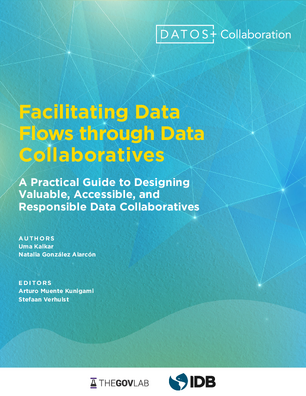Facilitating Data Flows through Data Collaboratives: A Practical Guide to Designing Valuable, Accessible, and Responsible Data Collaboratives
Date
Oct 2023
Data is an indispensable asset in today's society, but its production and sharing are subject to well-known market failures. Among these: neither economic nor academic markets efficiently reward costly data collection and quality assurance efforts; data providers cannot easily supervise the appropriate use of their data; and, correspondingly, users have weak incentives to pay for, acknowledge, and protect data that they receive from providers. Data collaboratives are a potential non-market solution to this problem, bringing together data providers and users to address these market failures. The governance frameworks for these collaboratives are varied and complex and their details are not widely known. This guide proposes a methodology and a set of common elements that facilitate experimentation and creation of collaborative environments. It offers guidance to governments on implementing effective data collaboratives as a means to promote data flows in Latin America and the Caribbean, harnessing their potential to design more effective services and improve public policies.




